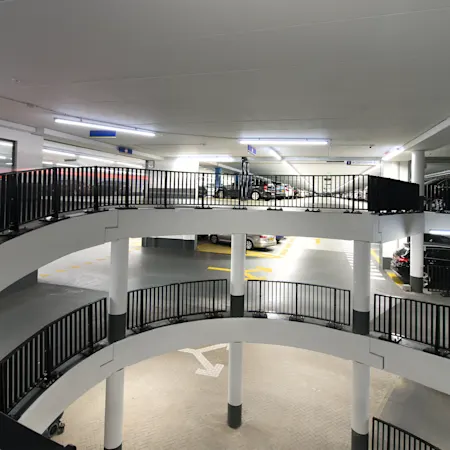Our Commitment to a Sustainable Future
Together with our employees, clients, and partners, we are continuously committed to developing environmentally friendly parking solutions. In doing so, we carefully consider the surrounding environment, ensure smooth traffic flow, and focus on the needs of our customers. We collaborate closely with architects and urban planners to help create more attractive, livable cities, and we invest in LED lighting with motion sensors, solar panels, and charging facilities for electric vehicles.
Our strategy aligns with the United Nations Sustainable Development Goals. In 2022, we partnered with global consultant Environmental Resource Management to identify the ESG (Environmental, Social, and Governance) topics most relevant to Interparking and our stakeholders. Through in-depth discussions with employees, customers, shareholders, suppliers, and other stakeholders, six key themes were defined which we address with care and focus:
Social engagement
Green mobility
Reducing CO₂ emissions
Improving air quality
Digital mobility solutions
Health, safety, and employee well-being
In 2023, we defined the following associated ESG objectives and KPIs (Key Performance Indicators).
Want to learn more about our ESG strategy and progress?
